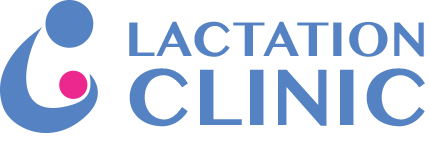Life without pain is truly priceless! So let’s discuss breast pain. If you have breasts and you are not nursing your baby, and you feel pain in your breast(s) – please see your doctor. However, if you were breastfeeding, but have stopped some time ago (more than a few months, to be precise) – please see your doctor. Lactation Consultants can advise about breastfeeding related issues only.
If you are breastfeeding and/or pumping, general advice would be to check your breasts any time you feed your baby – gently touch them all over and be sure there are no lumps, firmness, painfulness, hot, red, or swollen areas. Do not forget to check your both armpits, as many of us have accessory glandular tissue right somewhere there (in one, or both armpits). And if you realize you have pain or a feeling of discomfort in the breast and/or in the armpit – no, it does not mean it’s mastitis already, but it might go that far or even further (think abscess), as this situation should be addressed accordingly and in a timely manner.
Here is an action plan:
- Check your nipples carefully: are they all clear or are there any small white spots (so called “blebs”) or blisters – they might be the reason for the milk duct(s) blockage (acting as a cork in the bottle). If this is the case – soak the nipple in fairly warm water for 10-15 minutes and then try to rub it with a clean washcloth or your body sponge. In the worst case scenario, you might use a sterile needle and try to de-roof that thing. Apply some wound disinfectant after such a procedure.
- Loosen up your breasts making them softer and less engorged by applying so-called “breast gymnastics”. If it’s really swollen and painful, start moving slowly and little by little gradually increasing the range of motion as they become softer.
- Use some oil and apply a VERY gentle stroking/massage from the areola TOWARDS armpit. Use really light touch and stay on the surface of the breast, do not “dig in” deeper.
- Offer that breast for the baby to nurse immediately by trying to achieve positioning with the baby’s chin pointing to the blockage or at least towards it.
- You can also try pumping and/or hand expression, however, this should be done correctly, i.e. no pressing of the breast, just a gentle pressing in the areola area only. Be aware that wrong actions can make things worse.
- Apply cold wet compress (like a cold wet towel) after the feeding to reduce swelling and pain. If you are using an ice pack, keep it no longer than 10 minutes at once, then take it off for 5-10 minutes and then reapply for another 10 minutes.
- Try to feed the baby often from the affected side. Efficient milk removal is the key in this situation.
- Pain killers may help. Ibuprofen (i.e. Advil), which is an anti-inflammatory agent, might be more effective in reducing the inflammatory symptoms than a simple analgesic like paracetamol/acetaminophen (i.e. Tylenol). Ibuprofen and Tylenol are absolutely compatible with breastfeeding.
- Check your body temperature, as it’s important to keep a track of it. If you have a fever (38.5°C / 101.3°F or greater) for more than 24 hours, you should see the doctor.
- If you are 2-7 days postpartum and you feel that both your breasts are very swollen, firm, and painful, it might be simple engorgement. Act as described in points #2-8, except for points #4 and #6 – as your goal is to ensure equal milk removal from both breasts, and not to stimulate oversupply. Try to nurse as often as possible from both breasts and hand express/pump only as needed to relieve the discomfort. Sometimes engorgement hits to such an extent that nothing helps: breasts are very swollen and no milk is coming out of them. Call for help! We know how to help you!
- If you see no significant improvement in your condition despite everything you do, seek skilled help. Contact us – we do know how to help you as we are specifically trained for that! Yes, we know how to get rid of that pain and plugged duct, or a lump, or a bleb, and we do use our hands-on skills to help you!
If you require urgent help with breastfeeding:
Call or text @ 416-804-9300

